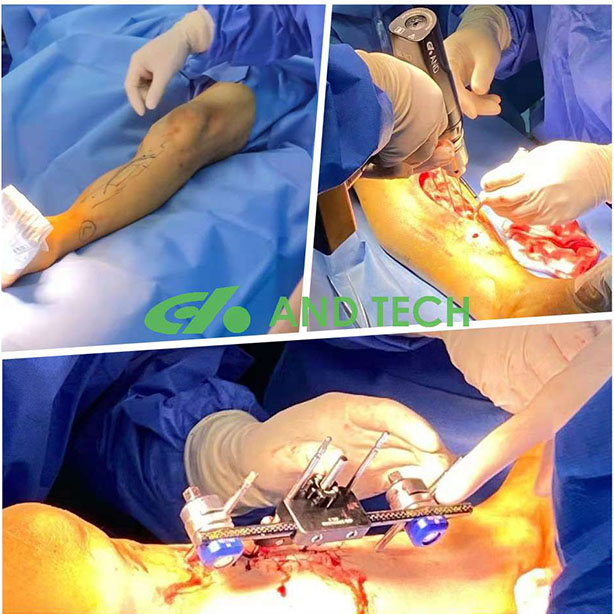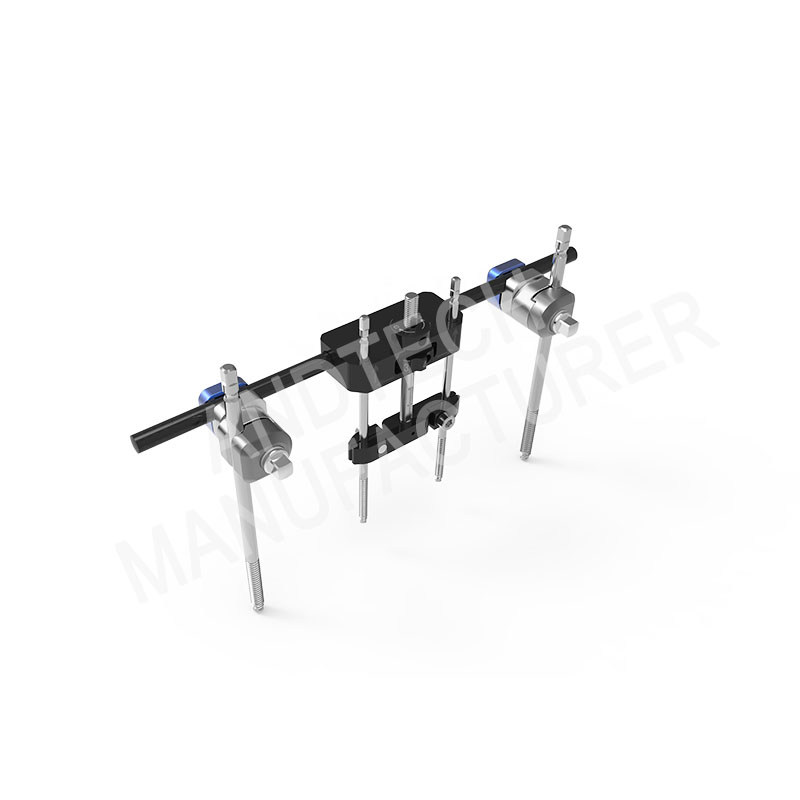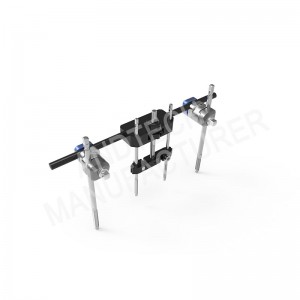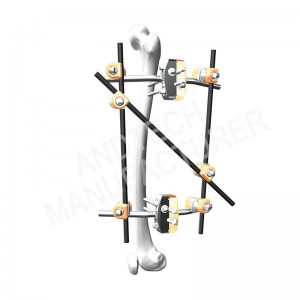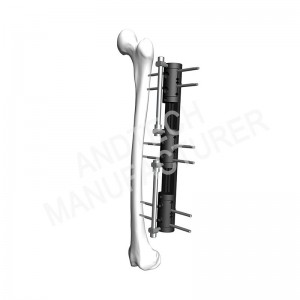Horizontal Limb Reconstruction External Fixation System
Indications
Chronic lower limb ischemic disease
Thromboangiitis obliterans
Lower extremity arteriosclerosis obliterans
Diabetic foot
Unique locking structure
Increase the stability of the osteotomy block
Simple structure, flexible assembly
Matches with existing metal bone needles and needle bar clamps
One-piece carbon fiber connecting rod
Non-spliced assembly
Lighter weight and higher strength
Φ8 &Φ11 Two connecting rod models
Meet different clinical needs
Accurate scale marking
Every 360°rotation, stretch or press 1mm
Medical Tips
Diabetes
Diabetes is a group of metabolic diseases characterized by high blood sugar.
Diabetic foot is a serious complication of diabetes.
Pathological changes of diabetic foot include diabetic neuropathy, peripheral vascular disease, neuropathic joint disease, ulcer formation, diabetic foot osteomyelitis, and may eventually develop into amputation.
Contraindications
The popliteal artery in the popliteal fossa of the affected limb is not pulsating. Take B-ultrasonic examination to confirm the blood flow of the popliteal artery.
The Theoretical Basis for the Treatment of Diabetic Foot by Lateral Bone Transporting Technique--The Tension-Stress Rule.
The tension-stress law is a theory of limb regeneration and functional reconstruction created by the Russian medical expert llizarov.
Llizarov has shown that in the process of cortical osteotomy and gradual traction extension, the blood vessels of the bone and limbs are regenerated significantly.
Case
